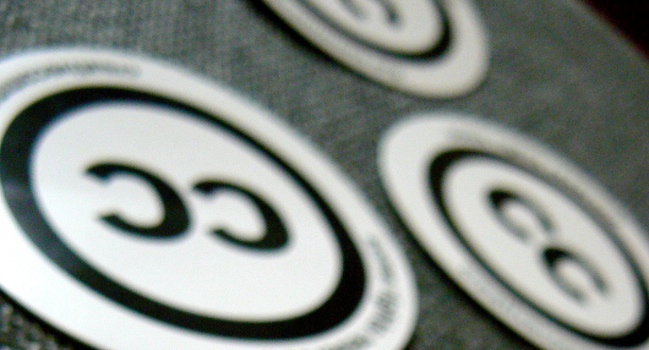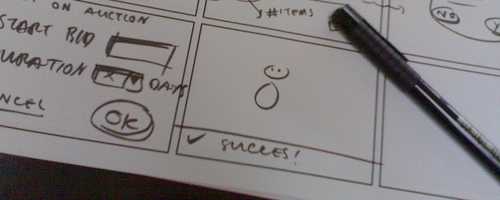Some thoughts about online privacy.
CC BY-NC-SA Chris KWM
You may have missed it, but there’s a privacy debate going on as we enter a new decade.* I wanted to share my thoughts, as I think there’s some confused thinking going on.
Usually, when people think of ‘privacy’ they’re actually conflating three notions:
- Privacy – not being seen by others
- Anonymity – not being identified by others
- Ownership – the ability to control things
These are different and should be considered separately.
A lot of digital ink has been spilled recently over changes made by Facebook, the world’s most popular social networking site. Mark Zuckerberg, Facebook’s founder, claimed privacy is ‘no longer a social norm’ which prompted some nods of agreement, but also some vehement criticism. The ever-eloquent danah boyd pretty much sums up the backlash:
There isn’t some radical shift in norms taking place. What’s changing is the opportunity to be public and the potential gain from doing so. Reality TV anyone? People are willing to put themselves out there when they can gain from it. But this doesn’t mean that everyone suddenly wants to be always in public. And it doesn’t mean that folks who live their lives in public don’t value privacy. The best way to maintain privacy as a public figure is to give folks the impression that everything about you is in public.
It’s this control over the public/private debate that is often conflated with anonymity and ownership. And it’s not just media hacks that get this wrong, it’s people with letters after their name. Dr Kieron O’Hara, for example, believes that online life distorts privacy rights for all:
As more private lives are exported online, reasonable expectations are diminishing… When our reasonable expectations diminish, as they have, by necessity our legal protection diminishes.
This effectively takes an argument reserved for celebrities (‘you live by the sword, you die by the sword’) and applies it to everyone else. Not so.
Most of what people object to in the name of ‘privacy’ online is merely technology making something that’s always been done easier or faster.
- Object to being ‘tagged’ in a photo on Facebook? Did you likewise object when people passed around printed photos of you at a gathering back-in-the-day?
- Don’t like your phone number being posted online? Is it ex-directory?
- Not a fan of Google Street View? Do you stop people walking by your house and taking pictures of the local area?
I would argue that no-one has a ‘right’ to anonymity in anything apart from legal proceedings. To attempt to do so – even in an analogue world – is unrealistic.
Recently, I received a suggestion via Skribit that I blog about how I deal with ‘having such a public web presence’ coupled with the tendency of students to ‘google their teachers’. The question seems to be about privacy: do you really want students to know everything about you?
The answer to that can be summed up in one word: control. I am my own media outlet. It doesn’t cost me anything but time to do so. Of course I have secrets, my dark side, things that I don’t want people to find out. But I can control what is said about me. Google Alerts emails me when my name is mentioned somewhere on the internet. If it’s defamatory or negative, I give my side of the story, try and work things out. It’s no different than going to the village gossip to set things straight.
I moderate comments on my YouTube videos, I keep most photos of my family away from public viewing areas on Flickr, and not all of my Delicious links are available for viewing by everyone. That’s why I like Aza Raskin’s idea of a Creative Commons for Privacy. Just as Creative Commons licenses have made it absolutely clear under what conditions you can re-use someone’s artistic work or media (see the top of this post), so a similar system for privacy would give unambiguous recourse for privacy violations. People will tend towards openness, of course they will.
But then I’m not so sure that people being open, controlling their digital identity and learning how to respect the wishes of others is such a bad thing. It’s all about being clear and unamibugous.
Further reading:
- Google’s privacy principles
- Privacy: the new currency of the social web
- Panopticlick: how easy is your browser to track?
*Technically, the decade doesn’t start until 2011, but everyone’s acting like it’s already started. Who am I to spoil the party? 😉





![Reblog this post [with Zemanta]](http://img.zemanta.com/reblog_e.png?x-id=f439ab0f-89c6-458a-ad4e-7d1d09a9c0c2)